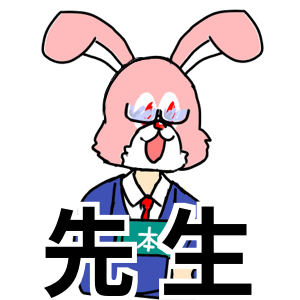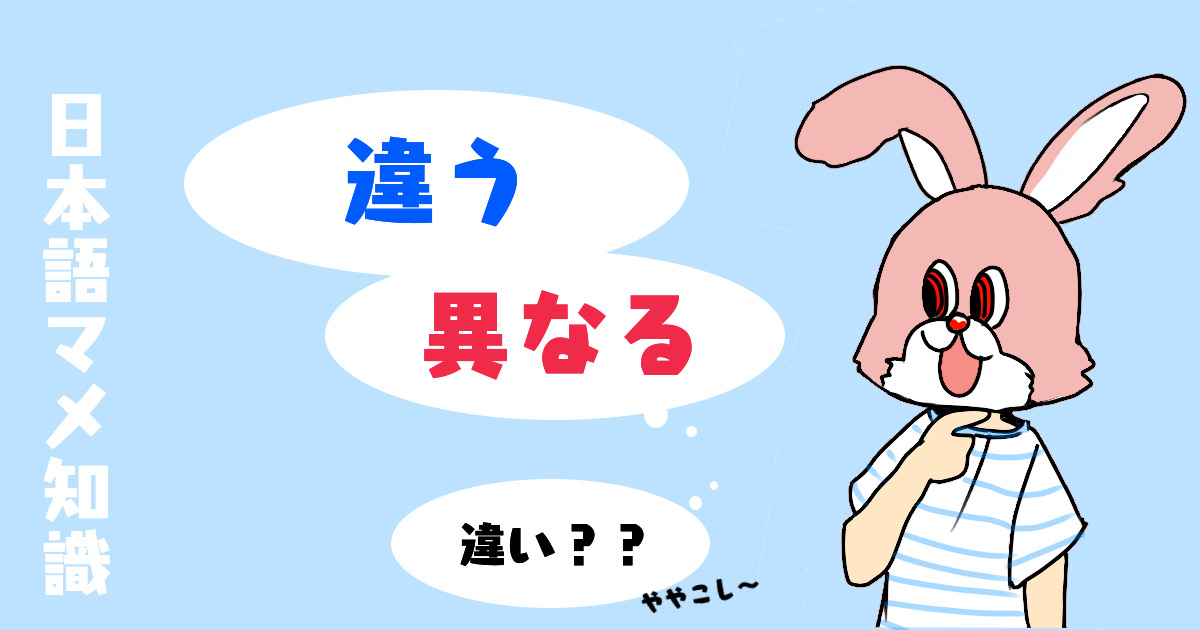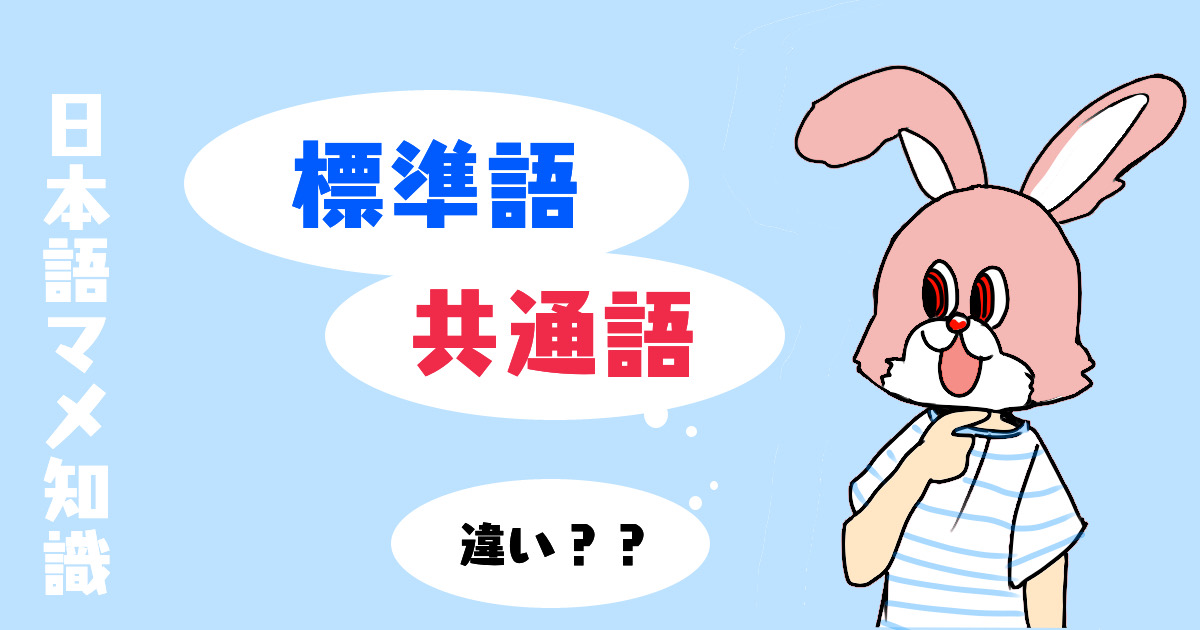
先生、「異なる」と「違う」の違いはありますか? Teacher, is there a difference between “kotonaru” and “chigau”?

「異なる」は少し硬い表現ですね。“Kotonaru” sounds a bit more formal.

「異なる」は硬い…では「違う」は柔らかい表現ですか? So “kotonaru” is formal… does that mean “chigau” is more casual?

「違う」は中立ですね。ただ、お客様や上司相手に「違います」とハッキリ言うのは避けましょう。“Chigau” is neutral. But when speaking to customers or your boss, avoid saying “chigaimasu” too directly.

今回は、「違う」と「異なる」が、どう違うのか見ていきましょうか。Let’s take a look at how “chigau” and “kotonaru” differ.

ややこしい言い方ですね!! That’s a tricky way to say it!
「違う」と「異なる」の使い分けが難しいと感じたことはありませんか?どちらも、何かと何かが別のものという意味ですが、使い方や微妙なニュアンスの違いがあります。ここでは、「異なると違う」について、使い分けや差異、類語・言い換えを英語付きでわかりやすく解説します。また、ビジネスや丁寧語などの敬語で覚えておきたいフレーズなども見ていきましょう。
Have you ever found it difficult to tell when to use “chigau” or “kotonaru”? Both mean that two things are different, but they’re used in slightly different ways and carry subtle nuances. Here, we’ll clearly explain how to use each one, their differences, synonyms, and English equivalents. We’ll also look at polite or business expressions worth remembering.
「違う・異なる」の意味・類語言い換え
英語の動詞「differ」や形容詞文「It`s different from~」などで表される「違う」と「異なる」。まずは、それぞれの意味と類語・言い換え表現・英語翻訳を例文付きで見ていきましょう。
Both “chigau” and “kotonaru” can be expressed in English with the verb “differ” or the phrase “It’s different from ~.”
Let’s look at their meanings, similar expressions, and English translations with example sentences.
「違う」の意味・類語言い換え
- あるものが別のものと合わないこと、正しくないこと。Something that does not match another thing; something incorrect.
- 広い意味で、正しくないことや間違いがあるという意味。In a broader sense, it means something is wrong or not right.
- 類語言い換え:異なる、相違する、間違う、食い違う、相反する、相容れない、別の、他の、異質な
- 英語:differ (from), vary
「パスワードが違います。」The password is different. / The password doesn’t match.
「君と僕じゃ立場が違うよ。」You and I are in different positions.
「違う違う、そんな意味で言ったんじゃないって。」No, no—that’s not what I meant!
「異なる」の意味・類語言い換え
- 2つの物事を比較して、差があること。Used to compare two things and show that there is a difference.
- やや堅い表現で学問分野(特に数学)で用いる。A slightly formal expression often used in academic contexts (especially in mathematics).
- 類語言い換え:違う、相違する、食い違う、相反する、相容ない、反対する、異質な、異様な
- 英語:differ (from), vary, (意見に対して)disagree
「彼は明らかにいつもと様子が異なった。」He was clearly different from usual.
「異なる2つの絵から共通点を見つけなさい。」Find the similarities between the two different paintings.
「私と彼女は異なる環境で育ちましたが、とても話が合います。」She and I grew up in different environments, but we get along very well.
「違う・異なる」の違いと使い分け
「①話が違う。②話が異なる。」この2つの例文について、違いが説明できますか?「ニュアンスの違いは何となく分かるけど…説明が難しい。」という方が多いでしょう。日本人も、ほとんど違いなく使っていますが、異なると違う。どのように使い分けるのでしょうか?「違う」と「異なる」のニュアンスの違いを実際の例文で見ていきましょう。
Can you explain the difference between these two sentences? ① Hanashi ga chigau. ② Hanashi ga kotonaru. Many people might say, “I kind of get the nuance, but it’s hard to explain.” Even native speakers use them almost interchangeably, but there is a subtle distinction. Let’s look at how chigau and kotonaru differ through examples.
「違うと異なる」の違い:意味の違い
①「話が違う。」
②「話が異なる。」
①「話が違う」は、単に昨日の話と今日の話が違うという意味だけでなく、内容が正しくない、期待に合わないという感情も含まれます。昨日と今日の話が違う以外にも、事実や倫理として正しくない話であるというニュアンスも出ます。一方、②「話が異なる」は、昨日言っていた話と今日の話が異なるといったときに使います。こちらは単に2つの話が比較して異なる、事実としての差を表します。感情的なニュアンスは含まれていません。
①This can mean not only that today’s story is different from yesterday’s, but also that the content is incorrect or doesn’t meet one’s expectations. It can carry a sense of frustration or emotional reaction — like “That’s not what you said before!” or “That’s not right.” ②This simply states that two stories are different when compared — for example, “The story today differs from the one yesterday.” It’s neutral and factual, without any emotional tone.
「違うと異なる」の違い:漢字の成り立ち
「違う」と「異なる」は、それぞれ漢字の成り立ちも大きく違います。「違う」の【違】は、十字路で立ち止まる足と別方向に足を向ける象形を含む会意形成文字。そむき離れるの意味を持ちます。「異なる」の【異】は、人がお面をつけて手をあげている様子を表します。お面で別人になることから、《ことなる》の意味を持つようになりました。
The kanji 違 in chigau combines symbols meaning “feet at a crossroads,” expressing the idea of turning away or diverging — hence the sense of “to differ” or “to go against.” The kanji 異 in kotonaru depicts a person wearing a mask with raised hands, symbolizing “becoming a different person.” From this image comes the meaning “to be different” or “distinct.”
「違うと異なる」使い分け:ポイント
「違う」と「異なる」の使い分けのポイントを例文で見ていきましょう。Let’s look at how to use “chigau” and “kotonaru” through examples.
①「色が異なる」
②「色が違う」
①「色が異なる」は、AとBを比べて色の違いを意味します。②「色が違う」となると、より広い意味でAとBを比べる、自分の求めた色ではない、本来あるべき色ではない、などいろいろなシーンが考えられます。「異なる色の2つの絵を比べてください。」のように「異なる」は、フォーマルなビジネスシーンや学術的な文脈でよく使われ、2つの物事を比較した上での違いを示すときに使います。「違う」は、広い意味で「正しくない」や「間違い」を含むということです。
① “Iro ga kotonaru” is used when comparing A and B to describe a factual difference in color. ② “Iro ga chigau” can mean more than just a comparison — it might imply “This isn’t the color I wanted,” or “This color isn’t right.” In formal or academic contexts, “kotonaru” is preferred to describe objective differences: “Please compare the two paintings of different colors.” By contrast, “chigau” can also suggest “incorrect” or “not as expected.”
「違うと異なる」の使い分け:ビジネス敬語
ビジネスシーンでは、「違う」という言い方はやや直接的な印象を与えることがあります。そこで、「異なる」やそれに類似する表現を用いると丁寧になります。In business, “chigau” can sound too direct or even blunt. Using “kotonaru” or similar expressions makes your speech more polite and professional.
「私の認識と違います。」→△(少し強い表現)My understanding is different.
「私の認識と異なるようですが…」→OK It seems our understandings differ…

「私の認識と異なるようですが…」というフレーズは、遠回しに物事を指摘するのに向いています。覚えておくと便利ですよ。This phrase is useful for gently pointing out a difference without sounding confrontational.
「違う」と「異なる」の類語言い換え表現
前述した通り、「違う」と「異なる」は、それぞれ類義語の関係です。そして、この他にも言い換えが可能な動詞の類語がいくつかあります。例えば「相違する」「食い違う」「相異なる」「変わる」です。As mentioned earlier, “chigau” and “kotonaru” are synonyms. In addition, there are several other verbs with similar meanings, such as “sōi suru” (to differ), “kuichigau” (to disagree/conflict), “ai kotonaru” (to be different), and “kawaru” (to change).
「音楽性の相違により、解散した。」=「音楽性の違いにより」They broke up due to musical differences.
「話が食い違っている。」=「(誤解があって)話が違っている。」Their stories don’t match.
「昨日と今日で意見が相異なる=「意見が変わる/違う/異なる。」My opinion today differs from yesterday.
ビジネス敬語におすすめの類語言い換え
「違う」は、広い意味があり使いやすい言葉ですが、敬語で使うにはストレートすぎる印象があります。ビジネスシーンでは、相手の意見に対して直接的ではない柔らかい対応が求められます。「恐縮ですが」「恐れ入りますが」などのクッション言葉を添えるとさらに丁寧です。While “chigau” is common and easy to use, it can sound too direct in business situations.
In professional or formal communication, it’s better to choose softer expressions like “sōi suru” or “kuichigau”, sometimes with a polite buffer phrase such as “kyōshuku desu ga” (I’m sorry to trouble you, but…) or “osoreirimasu ga” (Excuse me, but…).
「意見に相違があるようですが…。」It seems there’s a difference in our opinions…
「以前とお話が食い違っているようです。」 It seems your story differs from what we discussed before.

敬語表現というより待遇表現ですが…異なることを指摘した後は「恐縮ですが/恐れ入りますが、ご確認頂ければ幸いです」と、申し訳ないフリをしておきましょう。After pointing out a difference, to add something like: I’m sorry to trouble you, but I’d appreciate it if you could check that. This gives a polite and considerate impression, even if you’re not actually at fault.

日本語教師がそんなテキトーでいいんですか…? Isn’t that a bit too casual for a Japanese teacher?

「自分が悪くないのに謝る」「申し訳ないと伝える」文化は結構めずらしいんですよ。Actually, in Japanese culture, saying “I’m sorry” or “I apologize” even when you’re not at fault often helps smooth communication.

「上司とうまくいかない」という外国人に「申し訳ないフリをすると丁寧に見える」と話したら、うまくいった例もあります。One student who struggled with their boss tried pretending to be apologetic — and surprisingly, it worked!
まとめ
- 「違う」と「異なる」の違い
「違う」は、広い意味で「あるものと合わない」「間違っている」
「異なる」は、「二者間を比べて違う」 - 「違う」と「異なる」の漢字の成り立ち
【違】は、《そむきはなれる》
【異】は、お面で別人になる→《ことなる》 - 「違う」と「異なる」は、それぞれ類義語の関係
その他の類語言い換え:相違する、食い違う、相異なる、変わる - 「違う」と「異なる」のビジネス敬語表現
「違う」は、ビジネスで使うのには向かない
「異なる」を使い、申し訳ないフリをする
前回記事:【思う】【考える】の違いとは?
次回記事:【十分】と【充分】の違いとは?



コメント